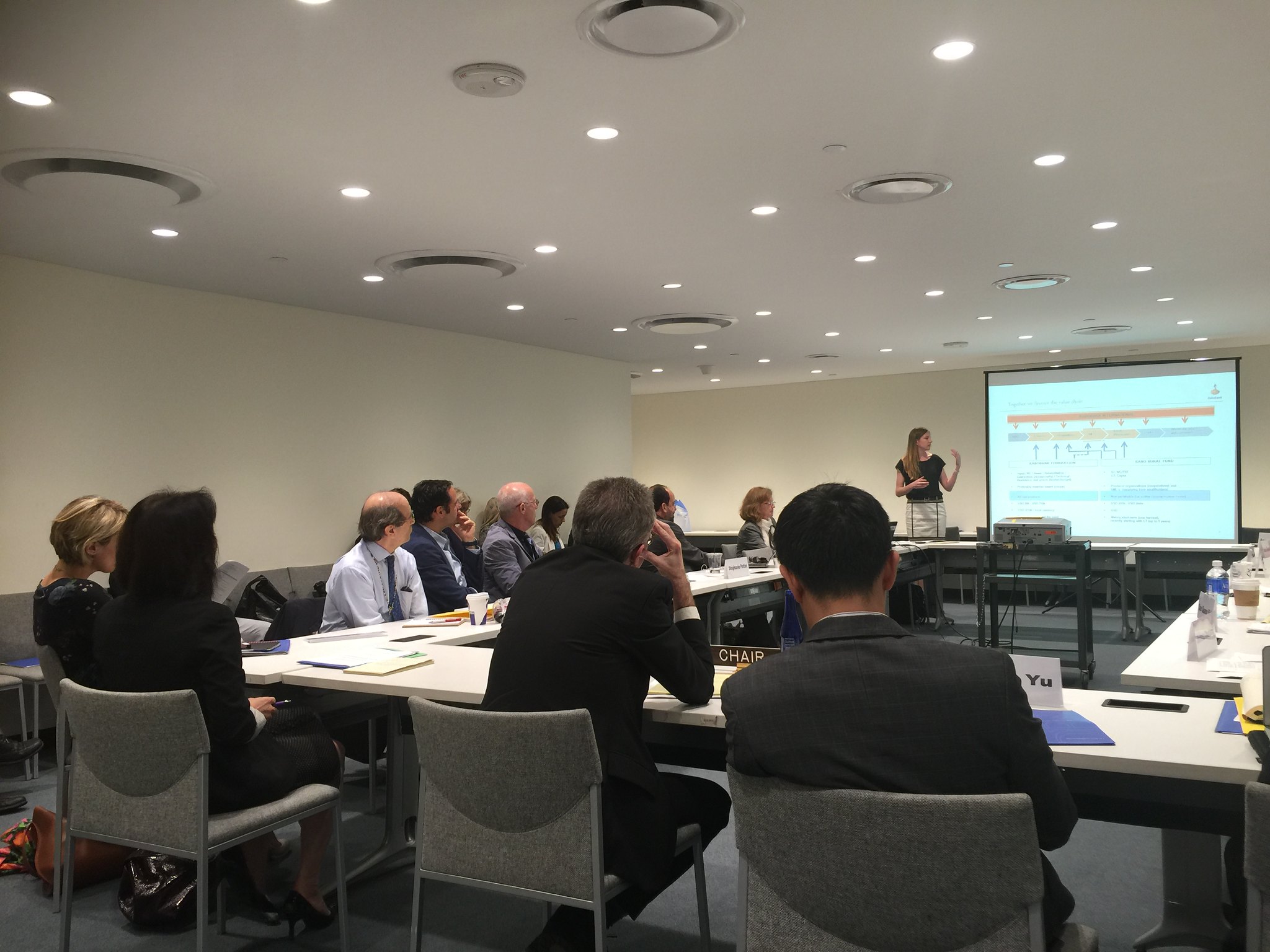
In its resolution E/CN.5/2016/L.4, the Economic and Social Council of the United Nations decided that the priority theme for the 2017-2018 review and policy cycle of the Commission for Social Development would be “Strategies for Eradicating Poverty to Achieve Sustainable Development for All”. In this context, the Division for Social Policy and Development of the United Nations Department of Economic and Social Affairs (UNDESA) is organizing an Expert Group Meeting on the priority theme of the fifty-fifth session of the Commission, from 1 to 3 June 2016 in New York.
The Commission for Social Development continues to prioritize and give prominence to the review and follow-up of the Copenhagen World Summit for Social Development. Furthermore, the Commission will make a vital contribution to the implementation of the 2030 Agenda for Sustainable Development. The overarching objective of the 2030 Agenda is to eradicate poverty in all its forms, including extreme poverty. The 2030 Agenda provides a vision of a shared future with equality and opportunities for all, and has pledged to leave no one behind in achieving the Sustainable Development Goals. In this regard, the Commission is well positioned, given its expertise and experience as the guardian of the social development agenda.
The Commission focus on strategies for eradicating poverty to achieve sustainable development for all during the two-year review and policy cycle for the 2017 and 2018 sessions,. Poverty is a challenge faced by the least developed countries, middle-income and developed countries alike; hence the review will cover all categories of countries. This expert meeting is organized to provide expert inputs to prepare for this important task. The outcomes of the meeting will provide important inputs to the Report of the Secretary-General on the priority theme by providing concrete, evidence-based reviews of poverty eradication strategies, highlighting those strategies that have been effective and those that have not and will draw lessons that will spur efforts to eradicate poverty within the context of the 2030 Agenda for Sustainable Development.
Documents
Expert Papers
- Country ownership, institutions and capacity to formulate and implement poverty eradication strategies – lessons from PRSPs and MDGs implementation by Naresh Singh
- Industrial Structural Upgrading and Poverty Reduction in China by Justin Yifu Lin and Miaojie Yu
- Conditional cash transfers in high-income countries and their impact on human capital accumulation by Márton Medgyesi
- The effects of conditional cash transfer programs on poverty reduction, human capital accumulation and wellbeing by Juan E. Saavedra
- Social Protection in Vietnam: Successes and obstacles to progressively by Dao Quang Vinh
- The impact of social protection floors on reducing poverty by Griet Cattaert
- Poverty eradication through self-employment and livelihoods development: the role of microcredit, variations on traditional microcredit, and alternatives to microcredit by Nathanael Goldberg
- Domestic Resource Mobilization and the Poor by Nora Lustig
- Promising African Successes for Enhancing Agricultural Productivity and Poverty Reduction by Richard Mkandawire
- Enhancing Women's Access to Landed Assets and Natural Resources by Bina Agarwal
- Human Capital Formation and Poverty Eradication: Lessons Learned from Evidence-Based Practices and Policies by Alison Fahey
- What policy lessons can be learnt from cases of pro-poorest growth? - Uganda Case Study - by Andrew Shepherd
Expert Presentations
- Human Capital Formation and Poverty Eradication: Lessons Learned from Evidence-Based Practices and Policies by Alison Fahey
- Two ideas: Pro-poorest Growth and Preventing Backsliding by Andrew Shepherd
- Eradicating Poverty in the 2030 Agenda: Some Intergenerational Considerations by Shantanu Mukherjee
- Investing in Health for Poverty Eradication: HIV and Malaria by Jeremy Barofsky
- Global Poverty and Poverty Reduction Strategies by Martin Ravallion
- Country ownership, institutions and capacity to formulate and implement poverty eradication strategies – lessons from PRSPs and MDGs implementation by Naresh Singh
- Poverty eradication through self-employment and livelihoods development: the role of microcredit and alternatives to credit by Nathanael Goldberg
- Boosting Female Employment and Tackling Informality in India by Shahana Chattaraj
- WESO 2016: Transforming Jobs to End Poverty by Vinicius Pinheiro
- Lifting People Out of Extreme Poverty through a Comprehensive Integrated Approach by Sadna Samaranayake
- The impact of social protection floors on reducing poverty by Griet Cattaert
- Industrial Upgrading, Job Creation, and Poverty Reduction in China by Miaojie Yu
- Conditional cash transfers in high-income countries and their impact on human capital accumulation by Márton Medgyesi
- Policies for enhancing access to productive resources and markets for inclusive growth and resilience – some experiences and lessons by Bekele Shiferaw
- Social Protection in Vietnam: Successes and obstacles to progressively by Dao Quang Vinh
- Promising African Successes for Enhancing Agricultural Productivity and Poverty Reduction by Richard Mkandawire
- Structural change, growth, employment and poverty eradication: The Latin American and Caribbean experience by Simone Cecchini
- Financing the Development of Value Chains by Stephanie Potter
- The SDG’s, Domestic Resource Mobilization and the Poor by Nora Lustig
Resources
- DESA's publication on Public-Private Partnerships and the 2030 Agenda for Sustainable Development
- Uganda Case Study: Ensuring escapes from Poverty are sustained to end extreme poverty by USAID
- PROPEL Toolkit: An Implementation Guide to the Ultra-Poor Graduation ApproachUltra-Poor Graduation Approach by BRAC
 Welcome to the United Nations
Welcome to the United Nations
